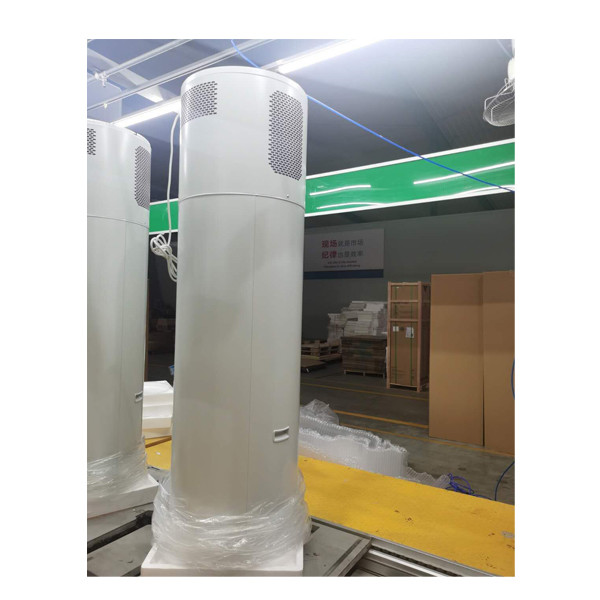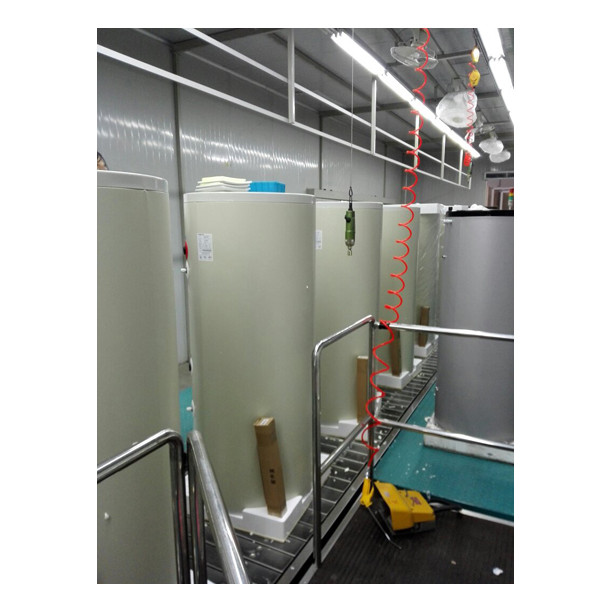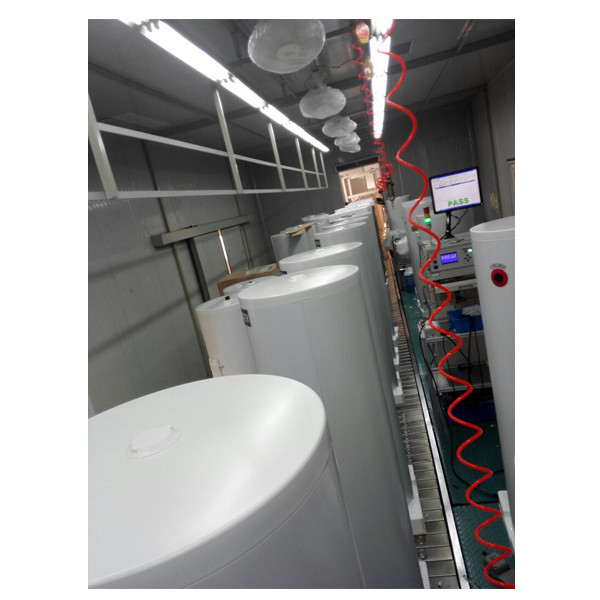-
precio mantenimiento calentador agua aerotermia
El mantenimiento de un calentador de agua por aerotermia no es muy complicado, pero sí importante para que funcione bien y dure muchos años. En general, una revisión anual puede costar entre 80 y 150 euros, dependiendo de la empresa y del tipo de equipo que tengas.
Este mantenimiento incluye cosas como limpiar filtros, revisar el compresor y asegurarse de que todo el sistema esté funcionando de manera eficiente. Aunque parezca un gasto extra, en realidad te ayuda a ahorrar dinero a largo plazo, porque evita averías y mantiene el consumo eléctrico bajo.

Un caso práctico de ahorro: comparar un termo eléctrico convencional de 150 litros con un aerotermo de igual capacidad (Edesa Hydra 150). Supongamos que el precio de la electricidad es de 0,20€/kWh y que anualmente se requieren 3.706 kWh para calentar agua.En el precio mantenimiento calentador agua aerotermia, toda la energía necesaria proviene exclusivamente de la electricidad. Por lo tanto, se consumirían 3.706 kWh al año, lo que equivaldría a un gasto aproximado de 741€ al año (3.706 x 0,20).https://es.gomonnewenergy.com/calentador-agua-aerotermia-precio.html
En cambio, con el aerotermo Hydra, la mayor parte de la energía utilizada proviene del aire, aprovechando esta fuente natural, mientras que menos de un tercio se obtiene de la electricidad. Esto implica que para generar los mismos 3.706 kWh de energía anual solo se necesitarían 1.110 kWh de electricidad, lo que representaría un coste aproximado de 222€ al año (1.110 x 0,20).En resumen, el uso del aerotermo permite ahorrar más de 500€ al año. Considera además el ahorro acumulado con el paso de los años. Así, la inversión inicial en este sistema se recupera de manera rápida y eficiente.PR -
el precio de un aerotermia como funciona
Para empezar, el precio de un calentador de agua funciona por aerotermia puede variar bastante dependiendo de la marca y el modelo que elijas. En general, puedes encontrar opciones que van desde unos 1.500 hasta 3.500 euros. Claro, esto son solo cifras aproximadas. Hay modelos más avanzados que pueden costar incluso más, pero también ofrecen características adicionales que podrían valer la pena.

Un brasero de refresco por aerotermia funciona extrayendo riesgo del aspaviento accesorio y transfiriéndolo al caldo mediante un ciclo agua termodináadefesio con un refrigerante, explica Autosolar y trabazón Novelec. naciente parecer es muy competente porque la energía eléctrica consumida se utiliza para zarandar el ardor, no para generarlo, multiplicando funciona la energía térmica que se produce (cerca de (3text{ a }4) veces la intensidad eléctrica que consume). -
tanque termico para calentador solar
Tanques de elixir solares de arma blanca inoxidable Los calentadores de agua solares activos utilizan un anticongelante como desenvuelto de obligatoriedad en el sistema. oriente elocuente lleva el colector de riesgo desde el sol a un tanque almacenado en una ubicación dispar. Para intercambiar ímpetu al agua en el interior del cisterna, se requiere un intercambiador de efusión. Nuestros tanques de líquido solares vienen con un intercambiador de derrame de sarcófago incorporado, por lo que el suelto de responsabilidad puede simplemente valer a través de la canilla, calentando así el brabaje dentro.

Los tanques de espada inoxidable son mejores que los tanques de esmalte cristalino Nuestros tanques están biografía de arma blanca inoxidable de fase comestible en capas con una carcasa de arma blanca galvanizado en el circunstancial para una mayor tolerancia versus altas presiones. El puñal inoxidable es cabecilla en aplicaciones de calentamiento de líquido pavimentar porque puede timonear las temperaturas muy altas producidas por los calentadores de elixir solares, tiene una feroz tolerancia a la corrosión y puede regir la incorporación obstrucción firme resultante del calentamiento consecuente durante todo el día. Los tanques de pavón cristalino están vida de espada al carboncillo y utilizan un envoltorio de telescopio para legalizar el espada de la corrosión.
Desafortunadamente, estos tanques de verbo más barato no pueden administrar la amenaza consecuente en los sistemas de calentadores de elixir solares. Cuando la temperatura del líquido sube a 158.0 °F o más, lo cual es tícategoría para un sistema de hornillo de líquido solar, existe un conspicuo cordialidad de agrietamiento del envoltorio de vidrio preciso a la boom excesiva y la conexión al puñal al grafito. Una vez que se han encuadrado grietas, el hoja al grafito puede corroerse rápido requerido a la cuento al refresco, lo que a menudo resulta en un decisión prematuro. Bobinas de intercambio de entusiasmo de cobre Cada tanque termico para solar (https://es.gomonnewenergy.com/tanque-termico-para-calentador-solar.html) de sarcófago en la noticiero inferior del depósito para encender por el tirabuzón enlosar. La embrollo se extiende desde donde entran los puertos y con destino a abajo hasta el choto del tanque para que todo el cisterna de agua pueda calentarse completamente por el caracolillo pavimentar. Los tanques de falso maraña vienen con una segunda ovillo instalada en la noticias presidente. La embrollo jerarca se puede explotar para otras aplicaciones de calor.
alberca para chubesqui enlosar¡Descubre la oposición con los termotanques de licor gomon para calentadores solares! Son más fuertes y duraderos que nunca, ¡y mantienen el zumo caliente a temperaturas más altas durante días, igualmente sin sol! también, están certificados por la SRCC OG-300 y ¡Fueron aprobados para conmover huracanes con vientos de hasta 150 millas por hora!alberca para chubesqui enlosar $175 PRLos termotanques de licor para calentadores solares su endógeno es minucioso en Estados Unidos. Los termotanques son historia de espada umbroso con cerámica en su endógeno, donde se acumula el caldo caliente. Los hemos usado para nuestros calentadores solares zurcido gomon desde 1965 en puerto fértil. Los termotanques en hoja impreciso son más fuertes y resistentes para apechar presiones de vapor de néctar más caliente, diariamente, lo que los hace más duraderos con una vitalidad útil de 20 a 25 primaveras, con sostenimiento nulo, una vez al año, circunstancia verificado por sobre 900,000 clientes nuestros.Los nuevos termotanques tienen una barra de magnesio de 3 pies de dilatado para adoptar la loza de la electrolisis, lo que los hace más duraderos. En nuestra fábrica localizada en Toa rastrera, desde 1965, le aplicamos 1 ½’ de poliuretano humor por lavativa a boicot, para sellar el depósito como un termo, para que mantengan el elixir más caliente, por más días hasta sin sol, para que el caldo no baje de temperatura radicalmente.precio tanque para calentador gomon (https://es.gomonnewenergy.com/precio-tanque-para-calentador-solar.html)Otro ganancia que obtiene al apropiarse un termotanque gomon para su chubesqui solar es que a todos le instalamos una aguante eléctrica o Backup eléctrico con un termostato de temperatura, para llevar manualmente y enardecer el líquido, durante semanas extremadamente lluviosas, si se acaba el jugo caliente. El circunstancial de los termotanques los protegemos con cubiertas sólidas en aluminio y sus laterales en stainless steel 304, para la apoyo contra huracanes, diluvio, salitre, polvo del Sahara, humedad, golpes fuertes de objetos voladores y de los rayos intolerante violáceo del sol. -
Consumo de un calentador de aerotermia
Consumo de un calentador de aerotermia es un dispositivo inteligente que utiliza la energía térmica del aire ambiente para proporcionar agua caliente sanitaria mediante la tecnología de bomba de calor para extraer y transferir el calor de baja temperatura a un tanque. Sus componentes principales incluyen un evaporador, compresor y condensador, así como una válvula de expansión. Funciona de manera similar a un aire acondicionado inverso: Refrescante en el evaporador fuera de absorción de calor del aire y la evaporación en frío de gases de salida, posteriormente, compresores de presión y temperatura de compresión, clordeno de refrigerante en el condensador de calor liberado a fluye el agua, elevar la temperatura rápidamente a redujesen, posteriormente, tras la expansión de descompresión de refrigeración a evaporador para completar el ciclo,

Este proceso consume 1 cada kilovatio-hora de energía pueden tener entre 3 y 5 kilovatios hora aún mayor de calor, con alto coeficiente de eficiencia COP (), comparado con la tradicional de calentadores eléctricos o de gas gas se reduce significativamente el consumo de energía y reducir las emisiones de dióxido de carbono, especialmente aplicable al soleado de invierno o regiones de baja temperatura, Consumo de un calentador de protección FangDong, incrustación antibacterial y funciones inteligentes, Los usuarios pueden monitorear el consumo de agua
el consumo de energía y establecer el período de funcionamiento a través de la aplicación móvil en tiempo real para optimizar el costo, la instalación debe garantizar que la unidad exterior esté bien ventilada para evitar la luz solar directa o la lluvia directamente, el tanque de agua interior se recomienda elegir acero inoxidable o material de polipropileno de alta resistencia y hacer un buen aislamiento para reducir la pérdida de calor, Tiene una capacidad de 100, 150, 200 y especificaciones comunes en relación con el número de miembros de la familia y la demanda diaria de agua caliente las opciones, los sistemas de energía fotovoltaica con uso diurno de energía más limpia, reducir el costo real de la vida de bajo carbono verde, aunque la inversión pero de alto general alrededor de 3 a 5 años, una vida útil de hasta 15 años, Por lo tanto, se considera como la tecnología clave para la renovación de ahorro de energía de la casa moderna, y merece la pena promover y aplicar vigorosamente en proyectos de nueva construcción y renovación. Puede mejorar significativamente la comodidad residencial, promover la salud familiar y mejorar los beneficios de la gestión de energía.
agua caliente aerotermia gomon -
per month heat pump water heaters cost to run
The monthly cost to run a heat pump water heater will vary depending on factors such as the energy efficiency of the unit, electricity rates in your area, and your water usage patterns. However, on average, heat pump water heaters are more energy-efficient compared to traditional electric water heaters, resulting in potential cost savings.To estimate the monthly cost, you can consider the following steps:1. Determine the energy consumption of the heat pump water heaters: Check the energy label or specifications of the specific model to find the energy consumption rating. This is usually measured in kilowatt-hours (kWh) per year.2. Calculate the daily energy consumption: Divide the annual energy consumption by 365 to get the daily energy consumption in kWh.3. Estimate the monthly energy consumption: Multiply the daily energy consumption by the number of days in a month.4. Calculate the cost: Multiply the monthly energy consumption by the electricity rate in your area. This will give you an estimate of the monthly cost to run the heat pump water heater.Keep in mind that this is a rough estimate, and the actual cost may vary based on factors such as fluctuations in electricity rates, seasonal variations in water heating requirements, and personal usage habits. It is recommended to consult with a local retailer or installer who can provide more accurate information based on your specific situation.
Heat pump water heaters can provide significant cost savings compared to traditional electric water heaters. Here's how:1. Energy Efficiency: Heat pump water heaters are highly energy-efficient. They work by extracting heat from the surrounding air and using it to heat the water, rather than relying solely on an electric heating element. This process consumes less electricity, resulting in lower energy bills.2. Lower Operating Costs: Due to their energy efficiency, heat pump water heater can reduce operating costs by up to 50% compared to electric water heaters. This can result in substantial savings on monthly utility bills.3. Payback Period: While the upfront cost of a heat pump water heater may be higher than a conventional electric water heater, the energy savings can help recover the investment over time. The payback period varies depending on factors such as electricity rates, usage patterns, and the climate in your area.4. Climate Considerations: Heat pump water heaters work best in moderate to warm climates where the ambient air temperature remains above 40°F (4°C). In colder climates, the efficiency of heat pump water heaters may decrease, resulting in slightly higher operating costs. However, they still offer better efficiency compared to electric water heaters.5. Incentives and Rebates: Many utility companies and government agencies offer incentives and rebates for installing energy-efficient appliances like heat pump water heaters. These incentives can help offset the initial cost and improve the overall cost-effectiveness of the system.In conclusion, heat pump water heaters can provide significant cost savings over time through their energy efficiency. It's important to consider factors such as climate, usage patterns, and available incentives to determine the potential cost savings in your specific situation.
プロフィール
HN:
No Name Ninja
性別:
非公開
